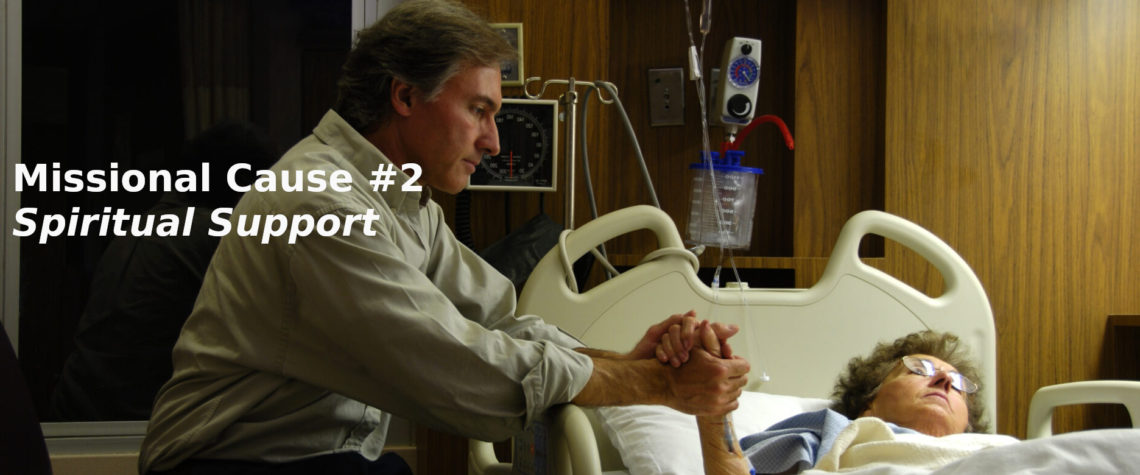Many Christian organizations play a pivotal role in spiritual caregiving by addressing a myriad of issues that impact vulnerable populations. These organizations, through their comprehensive training and specialized programs, aim to integrate spirituality into social services to foster community transformation and holistic well-being. The following paragraphs explore seven key ways that Christian organizations address in their spiritual caregiving efforts, each rooted in specific problems, solutions, and skills identified within their training frameworks. By delving into these issues, we gain a deeper understanding of how spiritual caregiving can be a transformative force in diverse communities.
1. Recognize and Care for Vulnerable Populations
One of the primary issues Christian organizations address is the recognition and care for vulnerable populations. Vulnerable populations, including the elderly, at-risk youth, and those with terminal illnesses, often require specialized care that goes beyond traditional social services. Without adequate training, social service practitioners may overlook the unique spiritual and emotional needs of these groups. Christian organizations tackle this issue by integrating experiential learning and spiritual transformation into their training programs, ensuring practitioners are equipped to recognize and address these needs effectively.
Jesus emphasized the importance of caring for the vulnerable in Matthew 25:40: “The King will reply, ‘Truly I tell you, whatever you did for one of the least of these brothers and sisters of mine, you did for me.’” This verse underscores the Christian mandate to serve and protect those who are most vulnerable, reflecting the mission of these organizations to provide holistic care. By training practitioners in this way, Christian organizations ensure that the needs of vulnerable populations are met with compassion and understanding, fostering healthier and more resilient communities.
2. Integrate Spirituality with Social Service
Another significant issue is the integration of spirituality with social service. Many social service practitioners are well-versed in addressing physical and psychological needs but may lack the skills to incorporate spiritual care into their practice. Christian organizations address this gap by offering specialized areas of study that blend spirituality with social service, focusing on community transformation. This approach not only enhances the practitioners’ ability to provide comprehensive care but also helps clients find deeper meaning and hope in their lives through the power of the gospel.
Proverbs 3:5-6 encourages reliance on spiritual guidance: “Trust in the Lord with all your heart and lean not on your own understanding; in all your ways submit to him, and he will make your paths straight.” By integrating spirituality into social services, practitioners can offer more profound support, helping individuals navigate their challenges with faith and resilience. This holistic approach ensures that spiritual well-being is considered alongside physical and emotional health, leading to more complete and effective care.
3. Provide Compassionate End-of-Life and Palliative Care
Christian organizations also address the issue of providing compassionate end-of-life and palliative care. This area of care requires not only medical knowledge but also the ability to offer spiritual support to patients and their families facing terminal illnesses. Without proper training, practitioners might struggle to provide the comfort and hope needed during such critical times. Programs offered by these organizations focus on developing skills in advanced life care planning and end-of-life issues, ensuring that practitioners can offer holistic care that includes spiritual comfort.
Psalm 23:4 provides solace: “Even though I walk through the darkest valley, I will fear no evil, for you are with me; your rod and your staff, they comfort me.” This verse reflects the comfort that spiritual care can provide to those facing death. By equipping practitioners with the necessary skills to offer spiritual and emotional support, Christian organizations help ensure that patients and their families receive compassionate care that addresses all aspects of their experience.
4. Foster Interprofessional and Interdisciplinary Care
Providing interprofessional and interdisciplinary care is another critical issue addressed by Christian organizations. Effective spiritual caregiving often requires collaboration among various healthcare and social service professionals. However, many practitioners may not be trained to work within interdisciplinary teams, leading to fragmented care. Christian organizations emphasize the importance of interprofessional care in their training, promoting collaboration and communication among different caregivers to ensure comprehensive support that includes the spiritual dimension.
Ecclesiastes 4:9-10 highlights the strength of partnership: “Two are better than one because they have a good return for their labor: If either of them falls down, one can help the other up.” This biblical principle underscores the value of working together. By fostering interprofessional collaboration, Christian organizations help create a more cohesive care environment where spiritual, physical, and emotional needs are addressed in unison, leading to better outcomes for those served.
5. Support Marriage and Family Therapy
Marriage and family therapy is another area where Christian organizations address significant issues. Family dynamics can profoundly impact an individual’s spiritual and emotional well-being. Practitioners need to be equipped to handle these dynamics within a theological framework. Christian organizations offer programs that integrate family systems theories with pastoral care theology, helping practitioners support families through spiritual and relational challenges.
Ephesians 5:25 provides guidance for familial relationships: “Husbands, love your wives, just as Christ loved the church and gave himself up for her.” This verse emphasizes the sacrificial love that should underpin family relationships. By training practitioners in marriage and family therapy with a spiritual perspective, Christian organizations help families build stronger, more loving relationships, contributing to overall community health and stability.
6. Address Mental Health and Spiritual Care
Addressing mental health issues with a spiritual care perspective is crucial for holistic well-being. Many individuals with mental health challenges seek meaning and purpose, which can be profoundly supported through spiritual care. However, integrating spiritual care into mental health services can be complex and requires specialized training. Christian organizations provide this training, ensuring practitioners can offer spiritually sensitive support to those struggling with mental illness.
Philippians 4:6-7 offers reassurance: “Do not be anxious about anything, but in every situation, by prayer and petition, with thanksgiving, present your requests to God. And the peace of God, which transcends all understanding, will guard your hearts and your minds in Christ Jesus.” This verse highlights the comfort and peace that spiritual practices can bring. By integrating spiritual care into mental health services, practitioners can help individuals find this peace, promoting holistic healing and resilience.
7. Offer Guidance for At-Risk Youth
Finally, supporting at-risk youth is a critical issue that Christian organizations address through spiritual caregiving. At-risk youth often face significant challenges, including instability, lack of support, and exposure to harmful environments. Christian organizations develop programs that offer spiritual guidance, mentorship, and support to help these young individuals navigate their challenges and build a positive future.
Jeremiah 29:11 provides hope: “For I know the plans I have for you,” declares the Lord, “plans to prosper you and not to harm you, plans to give you hope and a future.” This verse offers a message of hope and purpose that can be particularly powerful for at-risk youth. By providing spiritual care and support, Christian organizations help these young individuals realize their potential and pursue a hopeful and prosperous future.
Summary
Christian organizations address a wide range of issues through their spiritual caregiving efforts, each rooted in a deep understanding of community needs and a commitment to holistic care. By focusing on recognizing and caring for vulnerable populations, integrating spirituality with social services, providing compassionate end-of-life care, fostering interprofessional collaboration, supporting marriage and family dynamics, addressing mental health with spiritual care, and offering guidance to at-risk youth, these organizations contribute to the transformation and health of communities. Grounded in biblical principles and equipped with specialized training, Christian practitioners are well-prepared to make a meaningful impact in the lives of those they serve.

Dr. Curt Watke is a distinguished missiologist whose three-plus-decade-long career has significantly impacted Christian mission work in North America, particularly in under-reached and challenging regions. Holding a Ph.D. in Evangelism and Missions, Dr. Watke has focused on bridging cultural gaps and fostering sustainable Christian communities by developing innovative strategies that address contemporary challenges like globalization, urbanization, and religious pluralism. His emphasis on cultural sensitivity and contextualization in mission work is reflected in his collaborative writings, including notable works such as “Ministry Context Exploration: Understanding North American Cultures” and “Starting Reproducing Congregations.” Beyond his writing, Dr. Watke is a sought-after speaker and educator, lecturing at seminaries and conferences worldwide, and his teachings continue to inspire and equip new generations of missional leaders. His enduring legacy is marked by unwavering dedication to the mission of God and a profound influence on missional thought and practice. Dr. Watke serves as President and Professor of Evangelism & Missiology at Missional University.




